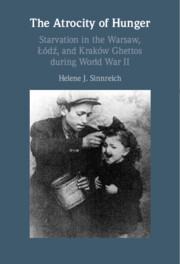Acknowledgments
This project began during my time as a doctoral student at Brandeis University and continued through my time as a faculty member at the University of Mississippi, Youngstown State University, and finally the University of Tennessee, Knoxville. This project has been supported in so many ways by institutions, scholars, librarians and archivists, friends, and family. I wish I could expound on each of their contributions over the years during which this project has developed, but this shortened version will have to suffice.
A number of institutions provided funding for travel to archives, research, and writing. I am grateful for institutional support from Brandeis University, Youngstown State University, and the University of Tennessee, Knoxville. At Brandeis, I received the Aladar Szegedy-Maszak Scholarship from the Tauber Institute for the Study of European Jewry and the Max Kade Travel Grant from the Center for German and European Studies. I would like to thank all those at Brandeis University who assisted me at various stages of this project as faculty and mentors. Youngstown State University supported my research through multiple funded research leaves, research grants, and travel funds including funds from the Clayman family endowed professorship in Holocaust and Judaic Studies. At the University of Tennessee, Knoxville, I was provided research leave through the Humanities Center and research funding through my chair in the Fern and Manfred Steinfeld Program in Judaic Studies. The Humanities Center additionally funded programs to support this project in a myriad of ways, including organizing writing groups, and peer review opportunities for the book proposal and manuscript. In addition, several foundations provided funding to support this project, including the Kosciuszko Foundation, which supported my time in Poland, and the German Academic Exchange Service (Deutscher Akademischer Austauschdienst), which supported the seminar “Famine and Mass Violence” at Youngstown State University, which I cohosted with Christian Gerlach.
Numerous fellowships from Holocaust institutions have provided not only time for writing and access to archival material but also the benefit of learning from the staff and other scholars in residence at those institutions. I am grateful to Yad Vashem for hosting me as a research fellow in 2009 and to the United States Holocaust Memorial Museum’s Center for Advanced Holocaust Studies (now the Jack, Joseph and Morton Mandel Center for Advanced Holocaust Studies), which hosted a gathering of eight other Łódź ghetto scholars as part of its summer workshop for scholars and also hosted me as a Charles H. Revson Foundation fellow in 2007.
No research project would be possible without the knowledge and skills of archivists and librarians. I am very grateful to the archivists and librarians who provided their expertise in finding materials for this project, including the archivists and staff at the Bundesarchiv in Berlin, Germany; the Jewish Historical Institute in Warsaw; and the Łódź State Archives. I am grateful to the librarians at the University of Tennessee, Knoxville; the Hebrew University in Jerusalem; Dorot Jewish Division Reading Room at the New York Public Library; the United States Holocaust Memorial Museum; Staatsbibliothek zu Berlin (the German State Library in Berlin); Youngstown State University; and the University of Łódź. I am grateful to the archivists and librarians at the Center for Jewish History, particularly those associated with YIVO Institute for Jewish Research, and especially Marek Web, whose knowledge of the Nachman Zonabend Collection was invaluable. The staff, archivists, and librarians at Yad Vashem in Jerusalem have been extremely helpful throughout my research, and I offer a special thank you to the library and archives staff at the United States Holocaust Memorial Museum, especially Vincent Slatt, Aaron Kornblum, and Ron Coleman.
I am deeply indebted to my current and former colleagues and fellow scholars for their support and assistance in various aspects of this manuscript: L. Diane Barnes, Manuela Ceballos, Tim Cole, Erin Darby, Nicole Eggers, Monika Flaschka, Sascha Feuchert, Ian Fuchs, G. Mehera Gerardo, Bethany Goldberg, Susan Grayzel, Severin Hochberg, Laura Jockuch, Joanna Kazik, Peter Klein, Irena Kohn, Alexander Korb, Dominika Łarionow, Hanno Loewy, Diana Palardy, Martha Pallante, Joanna Podolska, Ian Reifowitz, Robert Moses Shapiro, Christine Shepardson, Naomi Siedman, Marian Turski, Joseph Ward, Alexandra Zapruder, and Joshua Zeitz. I am particularly grateful for comments on the manuscript provided by Natalia Aleksiun, Christian Gerlach, Rachel Harris, Daniel Magilow, Anna Shternshis, and especially Gina DiSalvo.
I would like to thank the research assistants over the years who have gathered and organized large numbers of resources for this project: Karolina Pawlak, Jennifer Ware, and Carl Weinstein.
Thank you to my longtime copy editor Karen Adams, who read and edited several drafts of this book, as well as to Jessica Hinds-Bond, who copyedited the final version, and to my editor at Cambridge University Press, Liz Friend-Smith, who has been wonderful to work with through the whole publication process.
I would like to thank my friends for their support. There are too many to name them all, but a special thanks to the JAMs, Naomi Wernick, Jody Litrenta, Hana Sawka, Kinga Smoczynska, Yafit Dabush, Mauricio Chernovetzky, Jonathan Ornstein, Diane Ruengsorn, and especially Shawna Stout, who has traveled to see me no matter how remote the archive. Also, thanks goes to my cousin Batya Strulson for her love and encouragement.
Thank you to my family members who supported me including my Aunt Joan Ramer and Uncle Alan Gold, my parents, Karen and Simon Sinnreich, but especially my mother who has read every draft of this work from its early origins as my master’s thesis to its current form. A special thank you to my husband, Wesley Johnson Jr., and to my children, Nathan and Noah. Their love and support has been everything.

